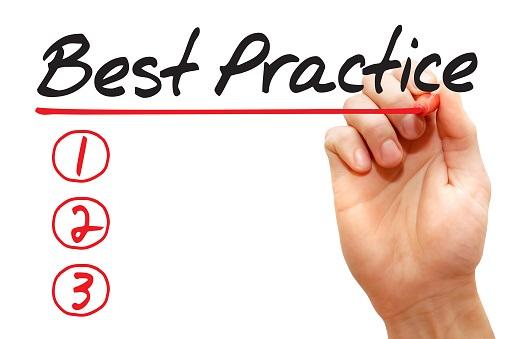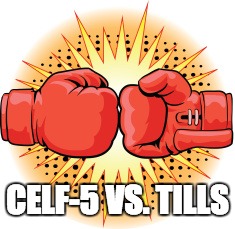Several years ago I wrote a post about how to perform clinical reading assessments of adolescent students. Today I am writing a follow-up post with a focus on the clinical reading assessment of elementary-aged students. For this purpose, I often use the books from the Continental Press series entitled: Content Reading for Geography, Social Studies, & Science. Texts for grades 2-7 of the series are perfect for assessment of struggling elementary-aged readers. Continue reading Clinical Assessment of Reading Abilities of Elementary Aged Children
Category: speech language pathology
Neuropsychological or Language/Literacy: Which Assessment is Right for My Child?
![]() Several years ago I began blogging on the subject of independent assessments in speech pathology. First, I wrote a post entitled “Special Education Disputes and Comprehensive Language Testing: What Parents, Attorneys, and Advocates Need to Know“, in which I used 4 different scenarios to illustrate the importance of comprehensive language evaluations for children with subtle language and learning needs. Then I wrote about: “What Makes an Independent Speech-Language-Literacy Evaluation a GOOD Evaluation?” in order to elucidate on what actually constitutes a good independent comprehensive assessment. Continue reading Neuropsychological or Language/Literacy: Which Assessment is Right for My Child?
Several years ago I began blogging on the subject of independent assessments in speech pathology. First, I wrote a post entitled “Special Education Disputes and Comprehensive Language Testing: What Parents, Attorneys, and Advocates Need to Know“, in which I used 4 different scenarios to illustrate the importance of comprehensive language evaluations for children with subtle language and learning needs. Then I wrote about: “What Makes an Independent Speech-Language-Literacy Evaluation a GOOD Evaluation?” in order to elucidate on what actually constitutes a good independent comprehensive assessment. Continue reading Neuropsychological or Language/Literacy: Which Assessment is Right for My Child?
Clinical Fellow (and Setting-Switching SLPs) Survival Guide in the Schools
 It’s early August, and that means that the start of a new school year is just around the corner. It also means that many newly graduated clinical fellows (as well as SLPs switching their settings) will begin their exciting yet slightly terrifying new jobs working for various school systems around the country. Since I was recently interviewing clinical fellows myself in my setting (an outpatient school located in a psychiatric hospital, run by a university), I decided to write this post in order to assist new graduates, and setting-switching professionals by describing what knowledge and skills are desirable to possess when working in the schools. Continue reading Clinical Fellow (and Setting-Switching SLPs) Survival Guide in the Schools
It’s early August, and that means that the start of a new school year is just around the corner. It also means that many newly graduated clinical fellows (as well as SLPs switching their settings) will begin their exciting yet slightly terrifying new jobs working for various school systems around the country. Since I was recently interviewing clinical fellows myself in my setting (an outpatient school located in a psychiatric hospital, run by a university), I decided to write this post in order to assist new graduates, and setting-switching professionals by describing what knowledge and skills are desirable to possess when working in the schools. Continue reading Clinical Fellow (and Setting-Switching SLPs) Survival Guide in the Schools
But is this the Best Practice Recommendation?
 Those of you familiar with my blog, know that a number of my posts take on a form of extended responses to posts and comments on social media which deal with certain questionable speech pathology trends and ongoing issues (e.g., controversial diagnostic labels, questionable recommendations, non-evidence based practices, etc.). So, today, I’d like to talk about sweeping general recommendations as pertaining to literacy interventions. Continue reading But is this the Best Practice Recommendation?
Those of you familiar with my blog, know that a number of my posts take on a form of extended responses to posts and comments on social media which deal with certain questionable speech pathology trends and ongoing issues (e.g., controversial diagnostic labels, questionable recommendations, non-evidence based practices, etc.). So, today, I’d like to talk about sweeping general recommendations as pertaining to literacy interventions. Continue reading But is this the Best Practice Recommendation?
Help, My Child is Receiving All These Therapies But It’s NOT Helping
 On a daily basis I receive emails and messages from concerned parents and professionals, which read along these lines: “My child/student has been diagnosed with: dyslexia, ADHD, APD etc., s/he has been receiving speech, OT, vision, biofeedback, music therapies, etc. but nothing seems to be working.”
On a daily basis I receive emails and messages from concerned parents and professionals, which read along these lines: “My child/student has been diagnosed with: dyslexia, ADHD, APD etc., s/he has been receiving speech, OT, vision, biofeedback, music therapies, etc. but nothing seems to be working.”
Up until now, I have been providing individualized responses to such queries, however, given the unnerving similarity of all the received messages, today I decided to write this post, so other individuals with similar concerns can see my response. Continue reading Help, My Child is Receiving All These Therapies But It’s NOT Helping
Test Review: Clinical Assessment of Pragmatics (CAPs)
 Today due to popular demand I am reviewing the Clinical Assessment of Pragmatics (CAPs) for children and young adults ages 7 – 18, developed by the Lavi Institute and sold by WPS Publishing. Readers of this blog are familiar with the fact that I specialize in working with children diagnosed with psychiatric impairments and behavioral and emotional difficulties. They are also aware that I am constantly on the lookout for good quality social communication assessments due to a notorious dearth of good quality instruments in this area of language. Continue reading Test Review: Clinical Assessment of Pragmatics (CAPs)
Today due to popular demand I am reviewing the Clinical Assessment of Pragmatics (CAPs) for children and young adults ages 7 – 18, developed by the Lavi Institute and sold by WPS Publishing. Readers of this blog are familiar with the fact that I specialize in working with children diagnosed with psychiatric impairments and behavioral and emotional difficulties. They are also aware that I am constantly on the lookout for good quality social communication assessments due to a notorious dearth of good quality instruments in this area of language. Continue reading Test Review: Clinical Assessment of Pragmatics (CAPs)
Dear SLPs, Try Asking This Instead
 I frequently see numerous posts on Facebook that ask group members, “What are your activities/goals for a particular age group (e.g., preschool, middle school, high school, etc.) or a particular disorder (e.g., Down Syndrome)? After seeing these posts appear over and over again in a variety of groups, I decided to write my own post on this topic, explaining why asking such broad questions will not result in optimal therapeutic interventions for the clients in question. Continue reading Dear SLPs, Try Asking This Instead
I frequently see numerous posts on Facebook that ask group members, “What are your activities/goals for a particular age group (e.g., preschool, middle school, high school, etc.) or a particular disorder (e.g., Down Syndrome)? After seeing these posts appear over and over again in a variety of groups, I decided to write my own post on this topic, explaining why asking such broad questions will not result in optimal therapeutic interventions for the clients in question. Continue reading Dear SLPs, Try Asking This Instead
Speech, Language, and Literacy Fun with Karma Wilson’s “Bear” Books
 In my previous posts, I’ve shared my thoughts about picture books being an excellent source of materials for assessment and treatment purposes. They can serve as narrative elicitation aids for children of various ages and intellectual abilities, ranging from pre-K through fourth grade. They are also incredibly effective treatment aids for addressing a variety of speech, language, and literacy goals that extend far beyond narrative production. Continue reading Speech, Language, and Literacy Fun with Karma Wilson’s “Bear” Books
In my previous posts, I’ve shared my thoughts about picture books being an excellent source of materials for assessment and treatment purposes. They can serve as narrative elicitation aids for children of various ages and intellectual abilities, ranging from pre-K through fourth grade. They are also incredibly effective treatment aids for addressing a variety of speech, language, and literacy goals that extend far beyond narrative production. Continue reading Speech, Language, and Literacy Fun with Karma Wilson’s “Bear” Books
Why “good grades” do not automatically rule out “adverse educational impact”
 As a speech-language pathologist (SLP) working with school-age children, I frequently assess students whose language and literacy abilities adversely impact their academic functioning. For the parents of school-aged children with suspected language and literacy deficits as well as for the SLPs tasked with screening and evaluating them, the concept of ‘academic impact’ comes up on daily basis. In fact, not a day goes by when I do not see a variation of the following question: “Is there evidence of academic impact?”, being discussed in a variety of Facebook groups dedicated to speech pathology issues. Continue reading Why “good grades” do not automatically rule out “adverse educational impact”
As a speech-language pathologist (SLP) working with school-age children, I frequently assess students whose language and literacy abilities adversely impact their academic functioning. For the parents of school-aged children with suspected language and literacy deficits as well as for the SLPs tasked with screening and evaluating them, the concept of ‘academic impact’ comes up on daily basis. In fact, not a day goes by when I do not see a variation of the following question: “Is there evidence of academic impact?”, being discussed in a variety of Facebook groups dedicated to speech pathology issues. Continue reading Why “good grades” do not automatically rule out “adverse educational impact”
Editable Report Template and Tutorial for the Test of Integrated Language and Literacy

Today I am introducing my newest report template for the Test of Integrated Language and Literacy.
This 16-page fully editable report template discusses the testing results and includes the following components: Continue reading Editable Report Template and Tutorial for the Test of Integrated Language and Literacy